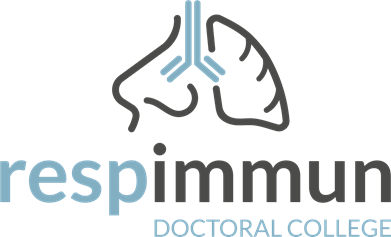
Brčić ⏩
• Heinemann
• Höfler
• Kargl
• Kwapiszewska
• Leithner
• Marsche
• Marsh
•
• Olschewski A
• Olschewski H
• Strobl
• Tomazic


The RESPImmun Young Faculty

|
Luka BRČIĆ, MD, PhDThe ANswer within the microEnvironment: pleural Mesothelioma resistance to Old and NEw drugs – ANEMONE |
|
Diagnostic and Research Center for Molecular BioMedicine, Diagnostic and Research Institute of Pathology, Medical University of Graz; and Ludwig Boltzmann Institute for Lung and Vascular Research,
Neue Stiftingstalstraße 6, A-8010 Graz;
| |
| websites: [RESPImmun] [MUG] | |
| • Profile ⏬ • Curriculum vitae • PhD students • Grants • Publications | |
Luka Brčić is a clinical pathologist specialized in lung and head and neck pathology, as wells as molecular pathology. His main research interests are lung and mediastinal tumors, where he combines histology, molecular analyses and clinical data in order to provide new insights onto these diseases. Currently his research mainly focuses on the molecular profiling of pleural mesothelioma, with special interest in immune cells in tumor microenvironment, correlation with radiological and clinical data, and application of Artifitial Intelligence to detect new predictive markers for mesothelioma therapy. As a part of the project close collaboration with the University of Padova, as well as with the group of Lynnette Fernandez Cuesta, IARC-WHO, is planned.
Projects
Area 3: Lung cancer
Project description
Principle Investigator: Julia Kargl
Background
Pleural mesothelioma (PM) is an intrathoracic neoplasia with an unfavourable prognosis. Although rare, a high peak in incidence is expected inHypothesis and objectives
Tumour microenvironment (TME), especially tumor immune microenvironment, plays a crucial role in the development and progression of PM, affecting the survival of mesothelial cells and evasion of the immunosurveillance. The main goal of the project is a precise characterization of TME in clinical samples, the evaluation of genetic alterations and gene / protein expression modulation on TME, and the identification of predictive biomarkers of ICI response by correlating pathological / molecular findings with clinical / radiological (radiomics) data using machine learning algorithms, in vitro and in vivo models.Methodology
The research will be done on 360 chemonaïve pleural biopsies from PM patients that will undergo neoadjuvant chemotherapy followed by surgery or palliative systemic treatment (platinum-based chemotherapy or immunotherapy). A subset of patient samples will be investigated before and after treatment. The research will be based on a multidisciplinary and interdisciplinary approach. Data from immunohistochemistry, radiomics, and high-throughput molecular assays will be integrated through advanced statistical methods to identify the most discriminative predictive features for the ICI treatment response. Experimental models (in vitro and in vivo) for functional studies will also be performed.Specifically, at Meduni Graz whole genome sequencing evaluation of collected samples and transcriptomic analysis (RNA-sequencing) will be performed. With TU Vienna collaboration high-performance liquid chromatography – mass spectrometry will be performed in a subset of samples. In all these analysis PhD student will be involved.